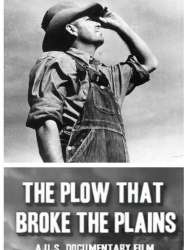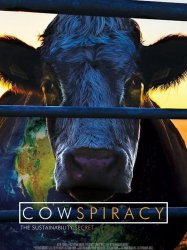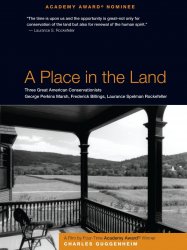Everyday Life in a Syrian Village is a film of genre Documentary directed by Omar Amiralay
Everyday Life in a Syrian Village (1974)

If you like this film, let us know!
Length 1h20
Directed by Omar Amiralay
Genres Documentary
Themes Environmental films, Documentary films about business, Documentary films about environmental issues
Rating69%










Everyday Life in a Syrian Village (Arabic: الحياة اليومية في قرية سورية) is a Syrian documentary film by the director Omar Amiralay. The film was ranked #55 on the Dubai International Film Festival's 2013 list of the top 100 Arab films.
Comments
Leave comment :
Suggestions of similar film to Everyday Life in a Syrian Village
There are 5 films with the same director, 8975 with the same cinematographic genres, 1248 films with the same themes (including 93 films with the same 3 themes than Everyday Life in a Syrian Village), to have finally 70 suggestions of similar films.If you liked Everyday Life in a Syrian Village, you will probably like those similar films :

Directed by Omar Amiralay
Genres Documentary
Themes Films about religion, Films about terrorism, Documentary films about law, Documentary films about war, Documentary films about historical events, Documentary films about politics, Documentary films about religion, Documentary films about terrorism, Political films, Films about Islam
 , 25minutes
, 25minutesDirected by Pare Lorentz
Origin USA
Genres Documentary
Themes Environmental films, Documentary films about business, Documentary films about environmental issues
Actors Thomas Chalmers
Rating61%





 , 1h28
, 1h28Origin USA
Genres Documentary
Themes Environmental films, Films about families, Documentary films about business, Documentary films about environmental issues, Documentaire sur une personnalité
Rating69%





 , 1h31
, 1h31Origin USA
Genres Documentary
Themes Films about animals, Environmental films, Politique, Films about the labor movement, Documentary films about business, Documentary films about animal rights, Documentaire animalier, Documentary films about law, Documentary films about environmental issues, Documentaire sur le monde du travail, Political films, Documentary films about nature
Rating80%





Cowspiracy est un documentaire d'importance majeure. Controversé, il se penche sur l'impact de l'élevage sur l'environnement. Kip Andersen, producteur et directeur du film, révèle des informations exclusives portant sur les politiques de groupes environnementaux comme Greenpeace, Sierra Club, Surfrider Foundation, and Rainforest Action Network en plus de statistiques alarmantes sur les impacts que génèrent la consommation de viande.

A Place in the Land (1998)
, 32minutesDirected by Charles Guggenheim
Origin USA
Genres Documentary
Themes Environmental films, Documentary films about business, Documentary films about environmental issues
Rating61%






Standing Silent Nation (2006)
Genres Documentary
Themes Environmental films, Documentary films about business, Documentary films about law, Documentary films about environmental issues, Documentaire sur une personnalité
Rating72%






Food, Inc. (2008)
, 1h34Directed by Robert Kenner
Origin USA
Genres Documentary
Themes Films about animals, Cooking films, Environmental films, Medical-themed films, Obésité, Documentaire sur la cuisine, Documentary films about business, Documentary films about animal rights, Documentary films about law, Documentary films about environmental issues, Documentaire sur la malbouffe, Documentary films about health care, Films about disabilities, Political films, Documentary films about nature
Rating77%





Le film s’inspire de l’essai Fast Food Nation d’Eric Schlosser. Il traite de la production de nourriture à grande échelle aux États-Unis et conclut que la viande et les légumes produits par ce type d’industrie sont mauvais pour la santé et pour l’environnement malgré les messages et l'imagerie présents sur les emballages des aliments. Pour cela l'enquête s'attache sur l'élevage industriel de bovins et d'ovins en interrogeant des éleveurs enchaînés à leurs emprunts dans le but de suivre le cahier des charges des grandes firmes agroalimentaires comme Cargill ou Smithfield Foods ainsi que sur le rôle prépondérant du maïs la plupart du temps maïs génétiquement modifié dans la composition de la quasi-totalité des produits vendus en supermarché aux Etats-Unis et ailleurs dans le monde. Le témoignage d'une mère devenue défenseuse des droits des consommateurs à la suite du décès accidentel de son fils, Kevin Kowalcyk, empoisonné par la bactérie Escherichia coli après avoir mangé un hamburger apporte un argument supplémentaire. Cette famille a obtenu gain de cause avec l'adoption de la Kevin's Law.

Strawberry Fields (2006)
, 1hOrigin Israel
Genres Drama, Documentary, Fantasy
Themes Films set in Africa, Environmental films, Films about religion, Documentary films about business, Documentary films about law, Documentary films about environmental issues, Documentary films about war, Documentary films about historical events, Documentaire sur une personnalité, Documentary films about politics, Documentary films about religion, Political films, Films about Jews and Judaism
Actors Mitsuki Tanimura, Yuria Haga
Rating64%





Strawberry Fields points out that strawberries grown in Gaza are the only agricultural product marketed internationally as being of Palestinian origin. One of the major Gaza strawberry farms in located at Beit Lahiya. More than 1,500 tons of strawberries are exported from Gaza to Europe through the Israeli company Agrexco. In order to get overseas, however, the fruits need to pass through the checkpoint that separates Israel and Gaza. The 2005–2006 growing season coincided with the Israel's disengagement from Gaza and the rise of Hamas as the ruling political entity. The armed conflict between Israel and Hamas resulted in the closing of the border checkpoint. The strawberries grown at Beit Lahiya cannot leave Gaza, resulting in significant losses for the farmers and their Agrexco partners. Unable to transport their produce, the farmers have no choice but to dispose of their crop and prepare for the following year’s growing season.

After Winter, Spring (2015)
, 1h15Genres Documentary
Themes Environmental films, Documentary films about business, Documentary films about environmental issues
Rating67%






Voices of Transition (2012)
, 1h5Origin France
Genres Documentary
Themes Environmental films, La mondialisation, Films about the labor movement, Documentary films about business, Documentary films about environmental issues, Documentary films about technology, Documentaire sur le monde du travail, Disaster films
Rating75%





Using interviews and overlays of graphics and text, the film presents the current problems facing industrial agriculture. It explores why in the interviewees' view the current industrial model is not up to the task of feeding the world's people. According to the film every calorie of energy contained in a food source currently takes between 10 and 20 calories of crude oil in the production of fertilizers and transportation to produce, leading to a strong dependence of the cost of food on oil prices. As a result of peak oil and increasing oil prices this dependence will lead to ever increasing food prices. According to the film, this dependence already represents a significant weak-spot in the global food supply chain. Additionally, agriculture is already responsible for 40% of greenhouse gas emissions, contributing to climate change. Furthermore, the film argues that the overuse of inorganic fertilizers has been responsible for the loss of soil fertility and threatens the complete loss of usable soil within the next decades through soil erosion and sinking crop yields. These effects, according to the film, can only be partly mitigated by the increased use of those same fertilizers. The loss of workplaces, the concentration of land in the hands of a few (allegedly a farm closes every 23 minutes in France) as well as the dependence on large corporations are enumerated as side effects of the industrialisation of agriculture since the 1920s. Companies, such as Monsanto and Bayer, control everything from seed stock to fertilizers and the necessary chemical mixes for hybrid plants, thereby controlling the entire supply chain. The film argues that this development was supported through subsidies from the World Bank. Interviews with Vandana Shiva, the founder of the Transition Towns movement Rob Hopkins and various agricultural experts serve to argue this viewpoint. The dependence on crude oil is illustrated through the example of the wholesale food market in Rungis.
 Connection
Connection